Why Zinedine Zidane said yes to a risky Real Madrid return
Zizou’s success with an ageing side left a poisoned chalice for his successors. The problems haven't yet been solved – so why has he returned now?
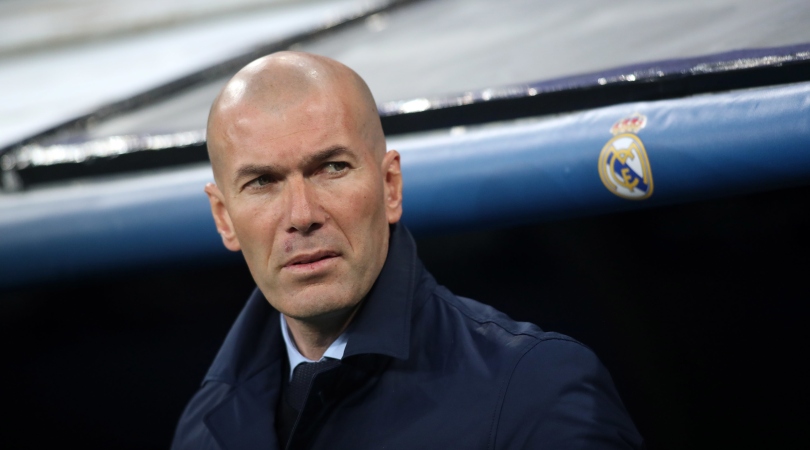
As a player, Zinedine Zidane was all quick turns and smart escapes. He was more than that, clearly, but the classic Zidane sequence – twisting elegantly away from a thicket of defenders while soft chords played in the background – has an abstract reference within his managerial career. Shortly after that third Champions League trophy had been won, trouble was approaching. As he'd done so many times before, Zidane glided skilfully and effortlessly away from it.
It was really the defining moment of his short coaching career. A strange thing to say about someone who has won three Champions Leagues, perhaps, even more so three in a row, but Zidane’s departure from Real Madrid framed his achievements so well that it shouldn't be understated. In a short-term profession, in which a head coach is only a month away from damnation or dismissal, nobody has ever chosen a better moment to leave the stage.
But rarely has someone chosen a stranger moment to return. Zidane is back at Madrid, called back on urgent, emergency business by Florentino Perez, and he has signed a new three-year contract at the Bernabeu.
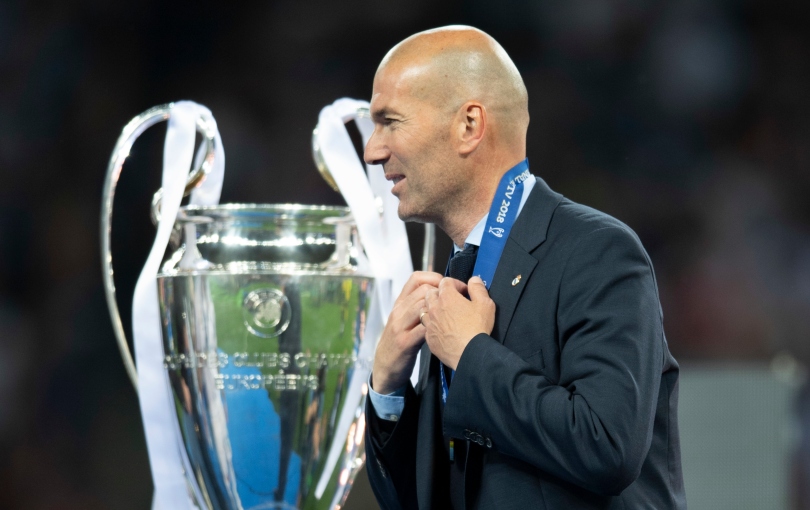
The impossible act to follow
What his initial departure had created, other than a deeper, enduring fondness for an already-iconic figure, was an impossible act to follow. Julen Lopetegui didn’t last long enough to find out how hard that task would be, and Santiago Solari was never intended as a permanent solution, but Zidane’s time at the club – however credit for his success is apportioned – turned his successor’s job into the biggest no-win situation in European football.
Zidane was smart. He understood the gravity of those Champions League titles, particularly at a club that craves the trophy like no other, but he was also wise enough to see what Madrid were: that is, an ageing side that was unnaturally reliant on crumbling tenets and a fragile deity. Cristiano Ronaldo’s move to Juventus certainly exacerbated those problems, bringing them to a head prematurely, but Zidane still recognised the direction of the curve.
SEE ALSO 9 managers who returned to ex-clubs – and what happened next
Get FourFourTwo Newsletter
The best features, fun and footballing quizzes, straight to your inbox every week.
Chief among his reasons for returning, according to the Independent’s Miguel Delaney, has been Florentino Perez’s promise of the funds required to enact a major re-building project. £300m and a promise to pursue some of the continent’s brightest stars. Look out Chelsea, look out Tottenham: Eden Hazard and Christian Eriksen will both be on that list. Given Perez’s fondness for tweaking Barcelona, Neymar might be on it too.
So this must have been a very appealing offer. Zidane is being given the opportunity to construct a new Real Madrid era. If successful, he could dispel the notion that previously he was just the beneficiary of an opulent inheritance and, instead, cast himself as a truly dynastic head coach. He needs that. Every great coach can lay claim to a reinvention – a methodical re-fit of a powerful side – and this is Zidane’s chance to add such an annotation to his CV.
Politics and peril
Within that situation lies all sorts of peril, though, because within this intended overhaul lies all sorts of political difficulty.
In a report for the Guardian, Sid Lowe has described the ructions in the Madrid dressing room. He conveyed the scene after Madrid’s humiliating defeat to Ajax in the Champions League, when Perez descended to the home dressing room, only to be met with a defiant, snarling Sergio Ramos. The club’s internal culture seems to have been bubbling for some time, with the season dominated by the sagas surrounding Isco and Gareth Bale, and latterly Marcelo’s gradual annexation from the first XI. While the anecdotes don’t quite depict a full-scale civil war, they do portray a raw situation which needed soothing.
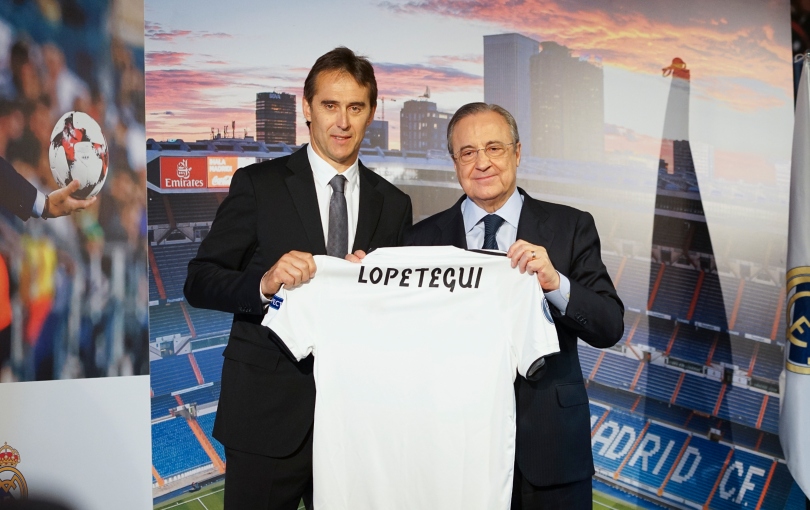
Zidane is that balm. To an extent, some of these wounds will heal upon his reappearance. Bale’s situation has worsened, and while the the Welsh forward has confirmed to FourFourTwo that the two never enjoyed the closest relationship, Marcelo and Isco can both look forward to a more agreeable working environment. But these are problems deferred, not cured.
The project
Real Madrid are not wholly unprepared for the future. Their internal strife may give that impression, but they still possess an enviable array of developing talent. Vinicius Jr is currently broken but still brilliant, while Alvaro Odriozola and Marco Asensio are really just off-colour rather than deserving of full reassessment. Fede Valverde, too, is an interesting central midfielder destined to improve, Sergio Reguilon looks like a cultured full-back and Raphael Varane, somehow still just 25, has many more years ahead of him.
So there exists a healthy, pliable nucleus for Zidane to work with. Additionally, many of the veterans of those Champions League wins remain. But therein lies the trouble, one which would surely be multiplied by any aggressive transfer strategy.
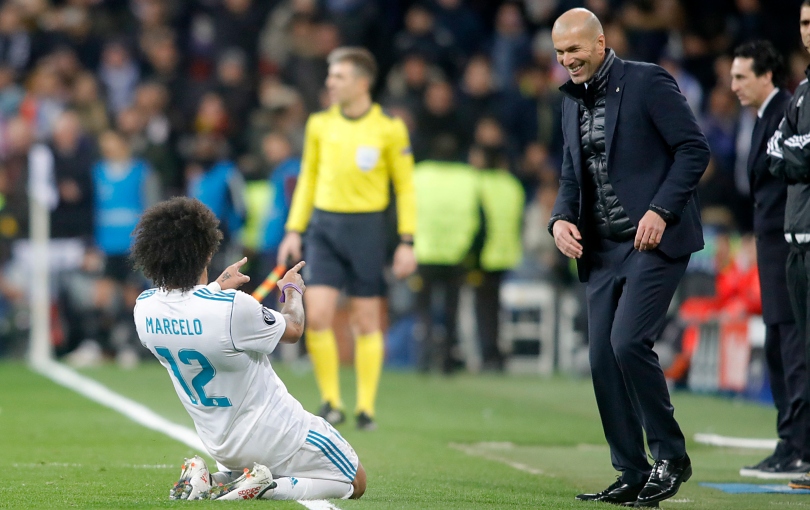
If Perez has deemed it time to start slaying the sacred cows within this side – Kroos, Benzema, Modric, Ramos, Marcelo – then that is a problem in itself. Players employed by Real Madrid are not usually without ego; in fact, players who have won three (or more) European trinkets for the club tend to become local institutions. That possibly doesn’t apply to Modric, who is expected to follow Bale out of the door this summer, or to Kroos, who is still young enough to survive any cull – but easing legends aside has always been a tricky business.
The chances are, in fact, that Zidane would suffer through that situation like any other manager. His direct rival for this job, if the reporting was to be believed, was Jose Mourinho. The Portuguese is a darker, more antagonistic character, certainly, but his media-handling skills are also far superior to Zidane’s. And yet his last stay in Madrid is remembered, among other strange episodes, for those running battles with Iker Casillas and – not coincidentally – his skirmishes with Marcelo.
Ego is the enemy. Having the capacity to spend vast sums of money is a fabulous luxury and, clearly, being able to attract the world’s finest players makes team building much easier. But it also creates its own issues. If Eriksen and Hazard are pursued, their introduction to the side would be at the expense of somebody else’s playing minutes. If Neymar is retrieved from his career purgatory in Paris and brought to the Spanish capital with his throbbing self-esteem in tow, whose part of the spotlight would he steal?
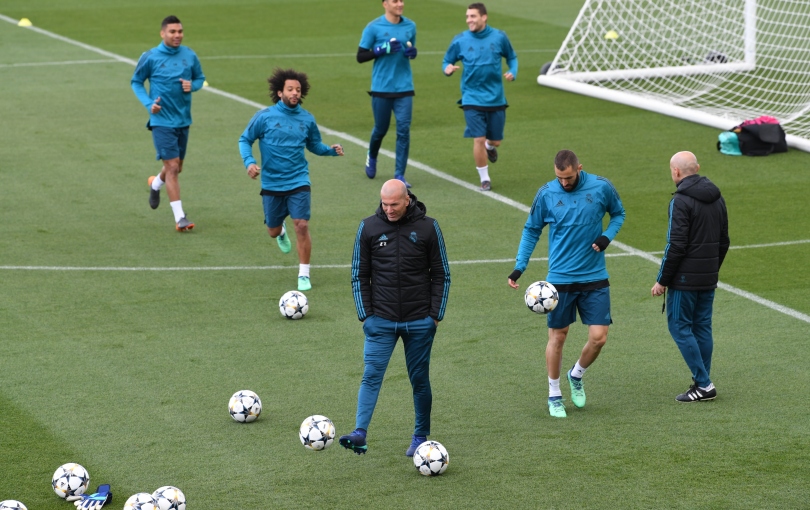
There’s reason enough to believe that Zidane would handle those developments well. While his detractors have always tried to separate him from the tactical success of the European three-peat, that achievement still had its root in a period of unusual dressing room calm. Calm which Zidane presided over and from which it can be deduced, fairly, that he is adept at handling strong and competitive personalities.
Rebuilding a team, defending a legacy
But this is a different time. Real Madrid’s transfer strategy between 2016 and 2019, Zidane’s original tenure, was uncharacteristically modest, both in terms of the players who arrived and those who departed. Nobody who joined the club was likely to challenge the orthodoxy, nobody who departed was emotionally tied to anything of particular significance.
Not since the 2014 departure of Angel Di Maria, who was sold to Manchester United to accommodate James Rodriguez, have Madrid encountered the kind of transaction which typically comes with consequences. Di Maria was popular with his team-mates and then-manager Carlo Ancelotti, had been instrumental in the 2014 Champions League Final – and he was jettisoned for a replacement who came nowhere close to winning local hearts and minds.
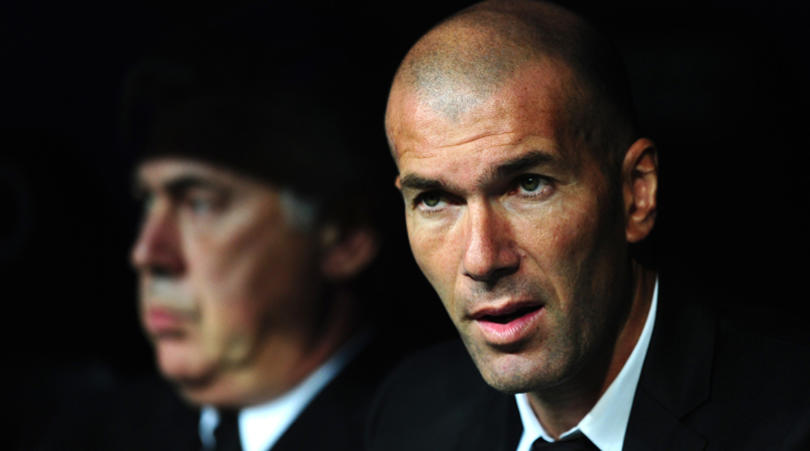
2016 COVER Zinedine Zidane the Manager: How Zizou positioned himself to lead Real Madrid
INTERVIEW Bale: I haven’t spoken to Zidane since scoring in the Champions League final
There are also differences now, clearly, in that Zidane will be trying to finesse the marginalisation of players who are beyond their prime and the wrong side of 30. That might make it easier, but the political ramifications of what follows will still unfold in front of natives whose loyalties will, at best, be split. He’s a bringer of light now, certainly, a welcome and necessary change of tone, but that doesn’t mean the he won’t have to step through the darkness to deliver restoration.
It’s a harder job this time. There aren’t the same guarantees of goals, the leading lights are all dimmer, and Zidane has no real record for handling this sort of transition.
In fact, so much of the concern provoked by Zidane’s return is instructed by the unknown – by the ambiguity over what they are and by the nebulous perception of his specific attributes. In fact, the only clarity lies in what we know him to be putting at risk: he has unlocked the vault and removed his legacy from its hermetic seal.
A return was always likely. He left those doors open on his way out. To comeback now, though, when his reign was still so rich in the mind, is a mighty gamble.
NOW READ… How Ole Gunnar Solskjaer is turning into Zinedine Zidane
Seb Stafford-Bloor is a football writer at Tifo Football and member of the Football Writers' Association. He was formerly a regularly columnist for the FourFourTwo website, covering all aspects of the game, including tactical analysis, reaction pieces, longer-term trends and critiquing the increasingly shady business of football's financial side and authorities' decision-making.
